Ken Auletta wrote an article for The New Yorker in 1997 titled “The Man Who Disappeared.” The man who “disappeared” was John McCandlish Philips, a journalist for The New York Times for 21 years. According to Auletta, Philips disappeared because he left a successful career in journalism.
But John McCandlish Philips did not disappear. He merely had quit daily journalism after a strong career and turned the focus of his life toward ministry and mentoring.
On March 12, Alice Rhee, senior producer of digital video at The Washington Post, spoke at The King’s College to talk about Philips, her late mentor. Rhee said at the beginning of her talk that she was going to discuss how the journalism of Philips was still relevant in the digital age. Philips’ pursuit of “truth, accuracy, and fairness” in journalism remained not only relevant, according to Rhee, but vitally important.
She played several videos from PostTV, showcasing some of the innovative multi-media taking place at PostTV. But she emphasized that the most artistic journalistic videos don't fly if the reporting and accuracy isn't bullet proof. "I'd rather be dead than wrong," she often tells her co-workers.
Rhee is a two-time Emmy-award winning television and multi-media producer. Her reporting career has spanned some of the most significant events in recent history: the 9/11 attacks, the Oklahoma City bombing trial, the handover of Hong Kong, Pope John Paul's death, and the Arab-Israeli conflict. Rhee covered major domestic stories from the Binghamton, NY massacre, to the Columbine High School shootings, the explosion of the Space Shuttle Columbia, and the national security challenges in the post 9-11 era.
Rhee said she met Philips through “a series of divinely orchestrated circumstances.” But the relationship formed into a mentorship when Rhee called Philips after one of her early assignments as an Associate Producer for NBC News and MSNBC. It was just weeks after she received her Master's degree from Columbia University's Graduate School of Journalism.
Rhee told Philips that she was so distressed watching victims’ family members grieve the crash of TWA 800 — that her blouse was soaked through with tears. Her biggest question for Philips was how he reconciled his faith with his profession. Rhee didn’t feel like what she was doing professionally “lined up so neatly with the Sunday school values” she’d grown up with.
Philips response to Rhee’s concerns was simply a question: “How can you move your audience, your reader, if the story has not first moved through you?” Philips told Rhee that being a journalist did not mean you lose your compassion, your humanity.
That was the first “gem of wisdom and instruction” that Philips gave her. Rhee said that Philips not only helped her as journalist, but “loved and prayed [her] through every aspect of [her] life.”
Terry Mattingly is another journalist who knew Philips. “I first met him as a reader,” Mattingly said. Mattingly soon realized that Philips was more than a great writer for The New York Times, but a man who cared for those who asked for his advice. Mattingly learned that Philips was about the person more than the craft.
Philips tried to instill his passion for truth and accuracy in those he mentored. Philips’ faith was not at odds with his profession. In a speech he gave in 2001, Philips said, “God gave us of the core ethic in the words, ‘You shall not bear false witness.’”
Similarly, Rhee said, “I am a person of faith. I hope I have become a person of deep faith.” She also identified herself as “a secular journalist, and though they may not seem necessarily compatible, both have been very true in my life.” Like Philips, Rhee said that the Bible “makes it very clear that we should tell the truth.” It was through Philips' faith that truth and accuracy become so important to him. Journalism or Capital “J” Journalism as Rhee requires truth, fairness, and accuracy, and is still “an essential public service.”
According to Rhee and Mattingly, Philips’ intense emergence into people’s lives and careers was a far more valuable use of time than the accolades Phillips’ peers heaped on him and which Auletta mentioned in his article. Philips believed people “are grown, they do not simply become,” said Rhee.
Delaney Filby is a student at The King's College in NYC, majoring in Media, Culture & The Arts.

